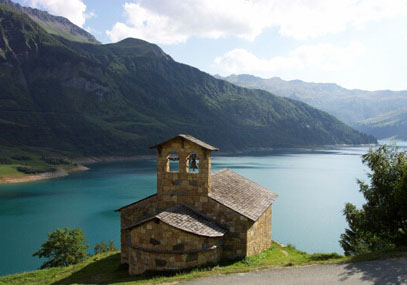Creation Regained by Jon Wilson One of the blessings of ecumenical Christian community is the chance to benefit from the riches of other Christian traditions. This small book, while not intentionally ecumenical, goes a long way toward offering such a contribution from the Reformed perspective. The author, a Canadian professor of religion and theology and a member of the Christian Reformed Church of North America, makes a few ecumenical blunders, and takes some questionable hermeneutical stands, but on the whole presents an inspiring paradigm for a Christian worldview. While Wolters calls this a ďreformationalĒ worldview, it is not inherently sectarian, and should prove edifying to Christians of all traditions. The book begins with a basic discussion of the concept of worldview. Wolters offers this definition: ďThe comprehensive framework of oneís basic beliefs about things.Ē His point here, to which he returns throughout the book, is that a Christian worldview encompasses all areas of life, not just things like church, theology, and evangelism. Our basic beliefs about things like journalism, literature, and sexuality should be shaped by our faith in Christ. The next three chapters address the three basic biblical categories Ė creation, fall, and redemption Ė with the goal of showing how these themes should shape the Christianís worldview. In addressing creation, Wolters emphasizes that Godís creation encompasses everything in human experience; not just trees and rivers, but emotions, work, marriage, and education. All of this creation is undergirded by Godís sustaining law, which Wolters breaks down into laws of nature and laws of norms. The former we know from science class, while the latter govern human culture and society. Wolters also makes clear that all of Godís creation is good, a state of things he refers to as structure. Everything in the world has a structure, which is anchored in Godís law of creation. In the chapter on the fall, Wolters introduces a concept related to structure: direction. While structure is the creational constitution of a thing, direction refers to how that thing is affected by either the fall or the redemption. Since the fall, every thing in creation has an element of direction inherent in it. For instance, agriculture is part of Godís creation, and is governed by his law; it has a structure. But it also has an element of direction: weeds and drought are distortions and perversions of the structure of agriculture, moving away from God, while a rich crop well tended is moving toward God and shares in the redemptionís power to curb sin and its effects. Throughout the chapters on fall and redemption, Wolters emphasizes that a Christian needs to see all of these elements in all aspects of creation. We first need to see Godís creation structure all around us, his good intent at the heart of all of creation. But we also need to carefully discern direction, to judge whether something is moving toward or away from God. When the direction is toward God, we should be able to see the power of Christís redemption at work in that aspect of creation. This short book offers material for fruitful consideration. pointing one section, Wolters suggests that the Garden of Eden should not be the subject of our longing. Rather, our longing should be focused on the city of God, the vision portrayed in the Book of Revelation. This city will be our final dwelling place Ė a city rather than a garden. Godís structure in creation includes the development of this creation by men and women, an aspect of Godís sustaining law that is still present in our world. Although work is complicated and compromised by sin and our complicity in it, our task remains the same: to cultivate and care for all of Godís creation by directing all things toward God and conforming to his gracious law of creation. [Jon Wilson is a coordinator
of Word of Life, a member
community of the Sword of the Spirit. He and his wife, Melody and their
four children live in Ypsilanti, Michigan, USA.]
|
. | |||
|
publishing address: Park Royal Business Centre, 9-17 Park Royal Road, Suite 108, London NW10 7LQ, United Kingdom email: living.bulwark@yahoo.com |
. |
